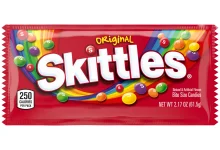Lamb (NZ Imported, Subcutaneous Fat, Cooked) – Nutritional Information
Lamb, specifically the subcutaneous fat from New Zealand imported cuts, is a rich and flavorful source of energy, providing a high concentration of fats and proteins, making it ideal for energy-dense meals. While it contains minimal carbohydrates and fiber, lamb fat is packed with essential micronutrients that contribute to overall health.
Ingredients Table
| Nutrient | Amount per 100g |
|---|---|
| Energy | 674 kcal |
| Protein | 5.24 g |
| Total Fat | 72.28 g |
| Saturated Fat | 31.44 g |
| Carbohydrates | 0.62 g |
| Fiber | 0.0 g |
| Sugar | 0.0 g |
| Calcium | 6.0 mg |
| Iron | 0.7 mg |
| Magnesium | 9.0 mg |
| Phosphorus | 84.0 mg |
| Potassium | 164.0 mg |
| Sodium | 43.0 mg |
| Zinc | 1.03 mg |
| Copper | 0.03 mcg |
| Manganese | 0.005 mg |
| Selenium | 2.1 mcg |
| Vitamin C | 0.0 mg |
| Thiamin (B1) | 0.094 mg |
| Riboflavin (B2) | 0.058 mg |
| Niacin (B3) | 1.53 mg |
| Vitamin B6 | 0.061 mg |
| Folate | 0.0 mcg |
| Vitamin B12 | 0.7 mcg |
| Vitamin A | 60.0 mcg |
| Vitamin E | 1.02 mg |
| Vitamin D2 | 0.1 mcg |
Allergen Information:
Lamb is a meat product and does not contain common allergens such as gluten, dairy, or nuts. However, those with a sensitivity to red meats should avoid consuming lamb or consult with a healthcare provider for personalized dietary advice.
Dietary Preferences:
Lamb (NZ Imported, Subcutaneous Fat) is suitable for various dietary preferences, including:
- Paleo Diet: Due to its high protein and fat content, lamb is a good fit for a Paleo diet.
- Keto Diet: Lamb is an excellent choice for ketogenic diets because of its high fat and low carbohydrate profile.
- Low-Carb/High-Fat Diet: The nutritional composition makes it ideal for those following low-carb or high-fat diets.
- Gluten-Free: As a meat product, it is naturally free of gluten.
- Low-Sodium Diet: While lamb contains some sodium, it is not excessively high and can fit into a moderate low-sodium regimen.
Nutritional Advice:
Lamb’s high-fat content, especially saturated fat, makes it a rich, energy-dense option for those needing a substantial caloric intake. It provides essential vitamins and minerals like Vitamin A, Vitamin B12, iron, and zinc, which are important for immune function, metabolism, and overall well-being. However, due to its saturated fat content, it is advisable to consume lamb in moderation, particularly for individuals watching their cholesterol levels or those with heart conditions.
Lamb’s iron content is beneficial for supporting red blood cell production, and its high phosphorus content aids in bone health. The fat content also provides a sustained source of energy, which is useful for those engaged in physically demanding activities or sports.
Conclusion:
Lamb (NZ Imported, Subcutaneous Fat, Cooked) offers a flavorful, nutrient-dense meat option that supports various dietary needs. While it is high in fats, it provides essential vitamins and minerals, making it a good choice for individuals seeking energy-dense meals rich in protein. However, due to its high saturated fat content, moderation is key, especially for individuals concerned about heart health or managing cholesterol levels.











